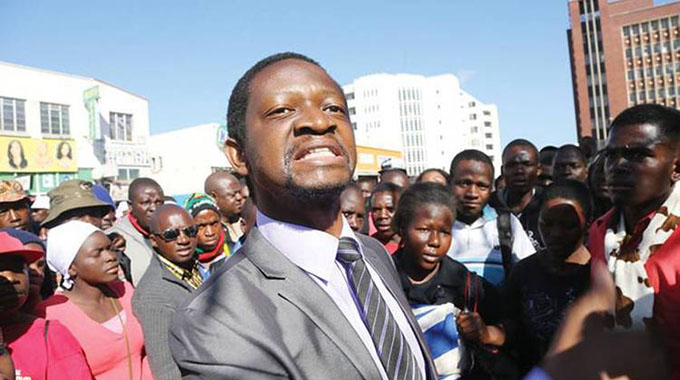The Old Man and the drum

Tanaka Chidora Literature Today
The Old Man is one of the most ideologically interesting characters in Charles Mungoshi’s “Waiting for the Rain” (1975). His ideology is contained in one ritual implement: the drum. So it is to the drum that I will dedicate the next 1 000 words. The Old Man feels that the acceptance by the young generation of Western ways dooms them from the start. He rejects modern information technologies, firstly as a matter of moral principle, and secondly because he sees them as inhuman. At first he claims: “… by the way he [John] said it to me it seems that’s all he is interested in. Riches and fame. As if that were everything.
As if we haven’t seen enough destruction through those two things” (p. 115).
This claim has some kind of moral superiority to it which might even earn him the identity of a hero from a certain section of readers.
There is a paradox as to whom these words are spoken: they are spoken to John, the revolutionary, John the politically conscious. But is it strange to hear that same John today, asking us to beat our own drum while “riches and fame” are intoxicating him? Are these not the post-independence contradictions that torment Africa today; that no matter how much we talk about beating our own drum, we no longer have any idea of what that drum is?
Is the Old Man really aware of the enormity of what he is saying, that beating our own drum is living our culture? What cultural superiority does the Old Man with his defeatist attitude have over, say, John, with his political and revolutionary attitude? Is John not more practical than the Old Man? At least John knows what it is that we call beating our own drum.
He knows that beating our own drum is not going about the barren landscape of Manyene cutting down scarce trees to make endless drums. Culture is practical. John, in the midst of this cultural breakdown, seems to be more cultural than the Old Man in that he is taking part in the generation of forces that are virulently hostile to colonial power and turning the imperial power‘s weapons against it. John, therefore, seems to have assumed a practical stance where the Old Man is idealistic.
But if John’s stance is practical, why do the words of the Old Man continue to contain, within their orbit, seeds of doubt about that generation of revolutionaries’ ability to bring independence to the country?
It is here that the text starts to have post-colonial relevance. It is at this stage that we ask if the “Johns” and “Lucifers” who lead post-colonial Africa really know what they are asking for when they ask us to co-operate with them and beat our own drum.
Are we not merely cooperating so that while we are still sweating and our vision is blurred by the dust they disappear onto the freedom train while we remain, waiting – a version of Achebe’s “eating on our behalf” – that we see in “A Man of the People”? How can culture be made to unite all for the common good by reducing structural differences that continue to mock our unity?
Thus, what the Old Man seems to be saying is that the generation of fighters represented by John has a deep hunger within them. The hunger is ideological. The colonial time-space they are in has taught them to adopt Western ways which are bound to deprive them of ideological freedom. For that reason the Old Man says: “That is why I won’t listen to anyone who speaks the way John does, fighting the white men and yet praying to the white men’s gods” (pp. 115-116).
This is why I agree with Musaemura Zimunya when he says: “The drum is a metaphor for the Old Man’s faith in the old traditional values of Africa. It is at once a symbol of individual identity as well as the collective hieroglyph of his culture …”
Some critics who have fumbled with the drum motif in “Waiting for the Rain” have missed the point entirely by relegating it to irrelevance.
They might have preferred, say a gun, to deal with the condition of the characters in Manyene and the hungry blacks in Rhodesia as a whole.
However, the reason why the relevance of the drum might have been missed lies in the abstraction of the drum without embedding it in the concrete reality from which it emerged. That concrete reality is culture.
While John and company turned to the gun, popularly regarded as a practical solution to the hunger of the time, the Old Man saw defeat.
With the gun they won battles, but without the drum they lost the war. If the gun alone was sufficient, why is Zimbabwe hungry still?
The words of the Old Man ring true: the revolutionary John and fellow fighters are doomed from the start because they do not have their own drum to beat. The significance of the drum is not only in the drum itself but in what it represents – a culture.
The drum, if abstracted, is not culture but a cultural symbol. It makes sense when it is studied within the culture from which it emerged because in that culture, it contributes in the creation of meaning. The drum is a vestige of a culture that has been besieged by European colonialism. It is not the drum per se that is at stake but the whole body of culture behind it.
The drum creates meaning. However, what makes Lucifer and the other educated and revolutionary elite spiritually and ideologically impoverished is their failure to find meaning in their culture. In this case, running away from the drum to the radio is as good as blocking one’s ears to stop hearing the whispers of the ancestors.
The drum is a cultural symbol and an ideology on its own.
It has a great contribution to the shaping of ideology and had John and those like him turned to the drum and what it represented, they would have found enough meaning to fashion a philosophy of action to deal effectively with the hunger of their generation that has continued in this generation.










Comments